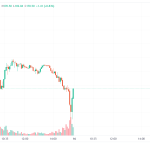Understanding of their own behaviour, establishing rules, avoiding common psychological Risks, traders can Improve their chances of long-term success.
Essential Self-Knowledge for Successful Trading
Defining Personal Behavior
Trading involves understanding and managing the psychological factors and personal tendencies that affect decision-making and trading performance.
Self-Knowledge:
1. Understanding Psychological Triggers: Traders must be acutely aware of their own psychological tendencies and triggers. For example, a trader might recognize that they are prone to panic during market downturns or overly confident after a series of wins. This self-awareness helps traders manage their emotions better, reducing the likelihood of impulsive decisions that can lead to losses.
2. Impact on Trading Outcomes: Emotions such as fear, greed, and overconfidence can heavily influence trading decisions. A trader who understands how these emotions affect their decision-making can develop strategies to mitigate their impact. For instance, they might implement strict stop-loss orders or use algorithmic trading to remove emotional bias from their trades.
Control Over Self:
1. Managing Personal Actions: By mastering self-control, traders can better adhere to their trading plans and avoid knee-jerk reactions. This might involve sticking to predefined entry and exit points, even when market conditions seem to be tempting them to deviate from their plan.
2. Predicting Market Behavior: When traders have control over their own behavior, they can better predict and react to the behavior of other market participants. For example, if a trader understands their own tendency to follow trends, they can also anticipate that other traders might follow similar patterns, allowing for more strategic decision-making.
Overcoming Collective Mindset
Personal Perspective:
1. Moving Away from Gathering Mentality: Traders who think independently can make more informed decisions rather than just following the crowd. This could involve doing thorough research, using technical and fundamental analysis, and forming their own views about market conditions, rather than just reacting to prevailing market trends.
2. Strategic Trading: By avoiding the herd mentality, traders can spot opportunities that others might miss. For instance, if the market is overly bullish and many traders are buying in, an independent trader might see it as an opportunity to sell or short the market if they believe a correction is imminent.
Structure and Rules:
1. Consistency: Establishing and following personal trading rules helps maintain consistency, which is crucial in a volatile market. These rules might include specific criteria for entering and exiting trades, risk management strategies, and limits on trading frequency.
2. Managing Risk: Rules help in managing risk by defining the maximum amount of capital that can be risked on a single trade or the maximum number of trades that can be executed in a day. This prevents excessive losses and ensures that traders stay within their risk tolerance.
Several key points for successful trading:
1. Structure and Rules: The necessity of having a structured approach to trading cannot be overstated. Without clear rules and guidelines, traders are more likely to make inconsistent decisions that are driven by emotions or external pressures rather than rational analysis.
2. Psychological Challenges: Traders must navigate several psychological challenges, including the temptation to avoid responsibility for losses, the influence of herd mentality, and reliance on superstitions or irrational beliefs. Recognizing and addressing these challenges is crucial for maintaining a disciplined trading approach.
3. Self-Awareness and Accountability: Successful traders must be self-aware and accountable for their decisions. This means learning from both successes and failures, adapting strategies based on performance, and continually refining their approach to trading.
The passage underscores that successful trading is as much about psychological discipline and personal structure as it is about understanding market mechanics. By developing a deep understanding of their own behavior, establishing clear rules, and avoiding common psychological Risks, traders can Improve their chances of long-term success in the markets.
Leave a comment
Your email address will not be published. Required fields are marked *



